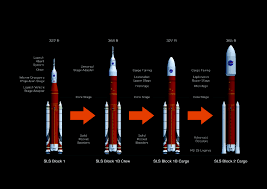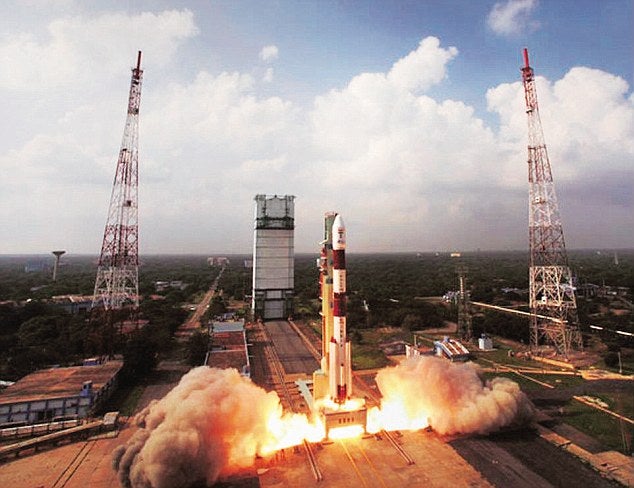 "f86sabre" (f86sabre)
"f86sabre" (f86sabre)
08/17/2016 at 08:18 • Filed to: Spacelopnik, Journeytomars
 3
3
 6
6
 "f86sabre" (f86sabre)
"f86sabre" (f86sabre)
08/17/2016 at 08:18 • Filed to: Spacelopnik, Journeytomars |  3 3
|  6 6 |

!!! UNKNOWN CONTENT TYPE !!!
Follow along. I will be attending this event and it looks pretty cool. They have a lot of folks lined up to spend time with us. @michaelrennick on Twitter and Instagram
 BringBackTheCommodore
> f86sabre
BringBackTheCommodore
> f86sabre
08/17/2016 at 08:33 |
|
For some reason, I was reminded of this:
 PS9
> f86sabre
PS9
> f86sabre
08/17/2016 at 08:44 |
|
I was kind of hoping the ISS would evolve into a support station for an always-in-orbit spaceship. Launching something that will take humans to Mars and other places means it also has to be a long-term habitat with food stores, complex life support systems, propulsion and fuel and all the other things my non-spaceship building brain can’t think off. Putting all of that in orbit every time we want to send humans somewhere beyond the moon is going to be a huge pain in the ass.
Until we have the tech to build VTOL spacecraft (if we ever get that. 47MJ/kg to get into orbit is a lot of juice. It may never happen.) We should probably put the main vessel in orbit and leave it there, using rockets to send up humans/fuel/supplies every time we want to do a mission.

...hey I just thought of something. Look at what it takes to lift people off the surface of the earth and into space. If we send people somewhere with gravity as strong as the earth’s is, how would they get off of it and come home? They’d need to bring a second rocket with fuel, launching pad and all that with them, or never come back. Lunar gravity was really weak compared to the earth’s, so a small vehicle and launcher was enough. How about mars? Do we have the technology to get people off it’s surface once we put them there? If not, do we have the mettle to send people on a mission where even if they survive, they can never return?
 BigBlock440
> PS9
BigBlock440
> PS9
08/17/2016 at 09:18 |
|
Until we have the tech to build VTOL spacecraft
Most of our spacecraft have been VTOL.
Also, the gravity of mars is about 1/3 of earth’s, so a little more than the moon but still significantly less than earth. Mars also doesn’t have the atmosphere to push through. Which reminds me about the scene from The Martian , how did Matt Damon get blown away in that storm? The Martian atmosphere is so thin, those winds wouldn’t have carried enough force to blow that shit around like on earth.
 f86sabre
> PS9
f86sabre
> PS9
08/17/2016 at 10:35 |
|
That makes an excellent question for the NASA team. ISS has a defined service life. I think they re-upped for another 10 years. We will need it longer. What is the plan?
 PS9
> BigBlock440
PS9
> BigBlock440
08/17/2016 at 11:47 |
|
Most of our spacecraft have been VTOL.
Most of our spacecraft have actually been multiple crafts that work together during launch, but are discarded in stages during normal operations. This is not the idea behind a VTOL craft, which must be capable of VTOL more than one time without the need for re-assembly. The closest thing we have to a VTOL space craft currently is the space-x rocket, which can land after it has been launched.
Mars also doesn’t have the atmosphere to push through.
Your understanding of where the difficulty lies in launching spacecraft is flawed. Earth could have no atmosphere at all and you would still need to accelerate to tens of thousands of miles per hour to put something in it’s orbit from the surface.
how did Matt Damon get blown away in that storm? The Martian atmosphere is so thin, those winds wouldn’t have carried enough force to blow that shit around like on earth.
‘The Martian’ is a fictional story created for entertainment purposes. It wasn’t a documentary.
 BigBlock440
> PS9
BigBlock440
> PS9
08/17/2016 at 12:02 |
|
10's of thousands of miles per hour is easier to achieve when there’s no air resistance. But I see you’re ignoring the part where I mentioned mars has 1/3 of earth’s gravity. So if not gravity and air resistance, what are the factors that make launching a spacecraft difficult?